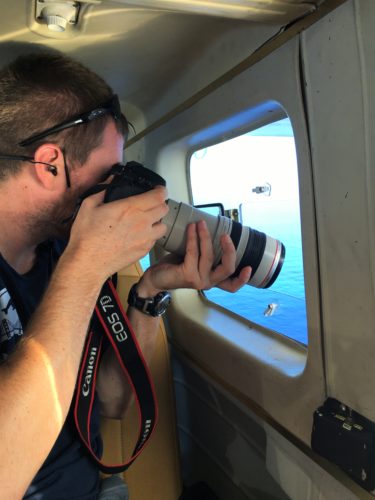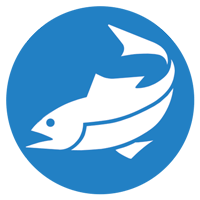Since June, the U.S. Navy has been conducting ship shock trials off the coast of Jacksonville, Florida, for two new littoral combat ship (LCS) designs in production. Each class of warship must undergo these series of controlled tests during which live explosives are set off near the ships to see how the hulls handle the shock from the explosions. The two ships undergoing these shock trials are the USS Jackson (LCS-6), the Independence LCS 2 class, and the USS Milwaukee (LCS-5), the Freedom LCS 1 design.
 In partnership with researchers from HDR Environmental, Operations and Construction, Inc., the Azura team is flying aerial surveys to protect marine mammals and sea turtles during these ship shock trials. Along with two pilots from Aspen Helicopters, Inc., the team searches for whales, dolphins, manatees, and sea turtles in the shock area before, during, and after each detonation event. The goal of these surveys is to make sure that none of these animals are in the shock area prior to these detonation events and to search for any potentially injured animals after the events. If any injured animals are observed, a Marine Animal Response Team vessel is onsite to respond and assess possible impacts from the detonation.
In partnership with researchers from HDR Environmental, Operations and Construction, Inc., the Azura team is flying aerial surveys to protect marine mammals and sea turtles during these ship shock trials. Along with two pilots from Aspen Helicopters, Inc., the team searches for whales, dolphins, manatees, and sea turtles in the shock area before, during, and after each detonation event. The goal of these surveys is to make sure that none of these animals are in the shock area prior to these detonation events and to search for any potentially injured animals after the events. If any injured animals are observed, a Marine Animal Response Team vessel is onsite to respond and assess possible impacts from the detonation.
During July, the research team flew a total of seven aerial surveys in support of the third and final shock trial of the USS Jackson (LCS-6). The previous two shocks to this vessel were completed in June. In addition to our primary aerial team, the University of North Carolina at Wilmington (UNCW) provided aerial survey support during these detonation events. During September, the Navy completed the first and second shock trials of the USS Milwaukee (LCS-5). Shock trials for this vessel are ongoing and anticipated to be completed in October.

